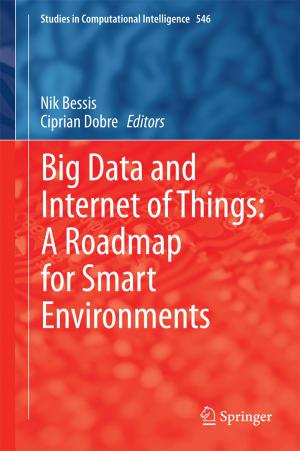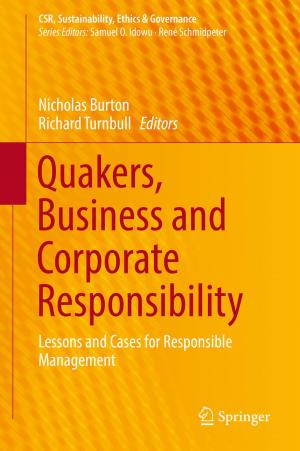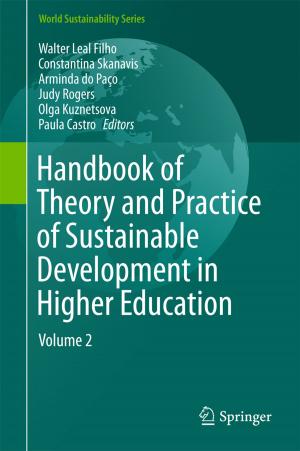Realising the 'Triple Dividend of Resilience'
A New Business Case for Disaster Risk Management
Nonfiction, Science & Nature, Science, Earth Sciences, Business & Finance, Economics| Author: | ISBN: | 9783319406947 | |
| Publisher: | Springer International Publishing | Publication: | November 25, 2016 |
| Imprint: | Springer | Language: | English |
| Author: | |
| ISBN: | 9783319406947 |
| Publisher: | Springer International Publishing |
| Publication: | November 25, 2016 |
| Imprint: | Springer |
| Language: | English |
Why aren’t we investing more in disaster resilience, despite the rising costs of disaster events? This book argues that decision-makers in governments, businesses, households, and development agencies tend to focus on avoiding losses from disasters, and perceive the return on investment as uncertain – only realised if a somewhat unlikely disaster event actually happens.
This book develops a new business case for investment based on the multiple dividends of resilience. This looks beyond only avoided losses (the first dividend) to the wider benefits gained independently of whether or not the disaster event occurs. These include unleashing entrepreneurial activities and productive investments by lowering the looming threat of losses from disasters and enabling businesses, farmers and homeowners to take positive risks (the second dividend); and co-benefits of resilience measures beyond just disaster risk (the third dividend), such as flood embankments in Bangladesh that double as roads, or wetlands in Colombo that reduce urban heat extremes.
Why aren’t we investing more in disaster resilience, despite the rising costs of disaster events? This book argues that decision-makers in governments, businesses, households, and development agencies tend to focus on avoiding losses from disasters, and perceive the return on investment as uncertain – only realised if a somewhat unlikely disaster event actually happens.
This book develops a new business case for investment based on the multiple dividends of resilience. This looks beyond only avoided losses (the first dividend) to the wider benefits gained independently of whether or not the disaster event occurs. These include unleashing entrepreneurial activities and productive investments by lowering the looming threat of losses from disasters and enabling businesses, farmers and homeowners to take positive risks (the second dividend); and co-benefits of resilience measures beyond just disaster risk (the third dividend), such as flood embankments in Bangladesh that double as roads, or wetlands in Colombo that reduce urban heat extremes.















